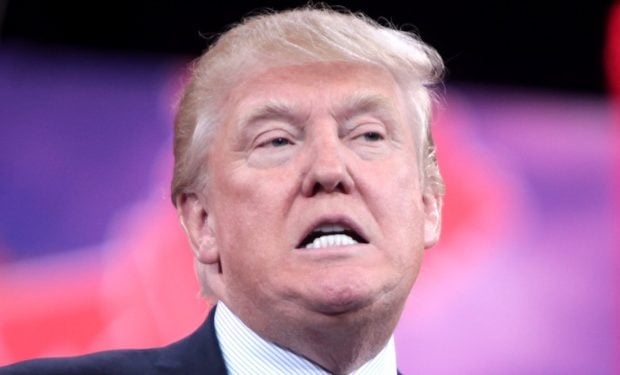Donald Trump was walking away from reporters today when he turned back to answer a question about whether the gag order imposed by Judge Juan Merchan in Trump’s “hush money” trial in Manhattan would impact the former president’s ability to testify in his own defense.
Walking back toward the gathered reporters, Trump clarified: “No, it won’t stop me from testifying. The gag order is not for testifying.”
Earlier in the week, Trump had indicated that the gag order could prohibit his testimony, perhaps meaning merely the scope of its content and his rhetorical targets — rather than meaning that the gag prevented him from testifying at all. At trial on Friday, the judge addressed the issue of Trump’s potential testimony, making sure he knew — in light of having floated the opposite idea — that he was not being barred from testimony.
Reporter: Is the gag order stopping you from testifying?
— Acyn (@Acyn) May 3, 2024
Trump: No. It won’t stop me from testifying. The gag order is not for testifying. It stops me from talking about people and responding when they say things about me.. pic.twitter.com/jpsjCl0SxO
Attorney and former prosecutor Ron Filipkowski, a vocal Trump antagonist, had correctly predicted on Thursday that “since Todd Blanche nodded his head yes when Trump claimed that his right to testify has been taken away because of the gag order, Merchan must start the day tomorrow inquiring of Trump’s understanding AND whether Blanche misadvised him on his 5th Amendment rights.” (Blanche is Trump’s lead attorney in this case.)
Acknowledging that the gag order — violations of which have so far cost the defendant $9000 — does not prevent him from testifying, Trump made a different claim: that the gag order prevented his self-defense in the court of public opinion. Prohibited from attacking or intimidating potential witnesses means he can’t attack his former attorney Michael Cohen, for instance, or anybody else who is expected to testify against him.
“The gag order stops me from talking and responding to people when they say things about me,” Trump asserted. “You have people saying things about me and I’m not allowed to respond, so you have this judge who’s taken away my constitutional right…I should be able to respond,” he said.
The argument against Trump’s vitriolic “responses” is that intimidated jurors and/or court personnel are unable to fulfill their duties and therefore compromise the court’s ability to operate. Like any defendant, Trump’s first amendment right to speech is curtailed by the court’s right to conduct its business without corrupting influences.
